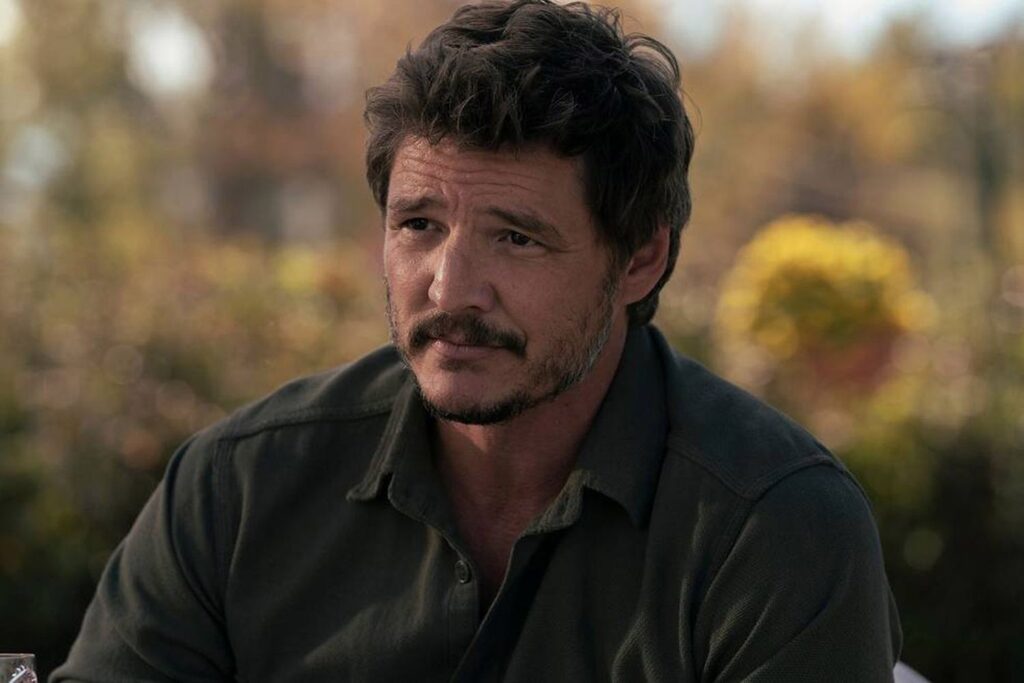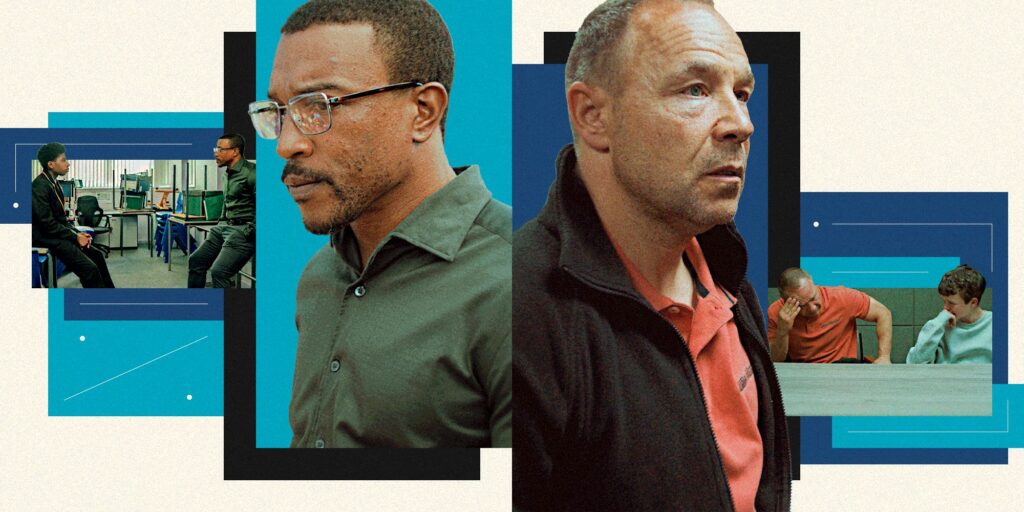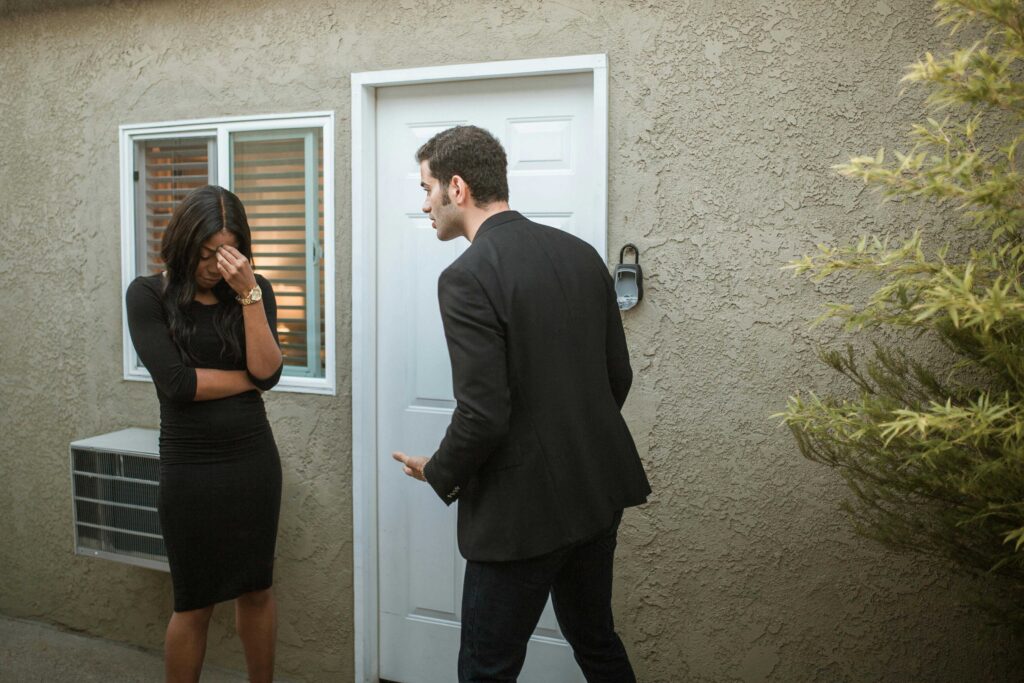During a visit to Graceland a while back, the author Johann Hari had a meltdown that led him to write one of the more unforgettable books of the last decade. It’s about how we’ve become a bunch of scatterbrains – and what that could mean for the future of humanity.
Hari had taken his godson, ‘Adam’, to Memphis with the aim of snapping the boy out of his obsession with the digital world. The 15-year-old had “dropped out of school and spent almost all his waking hours at home alternating blankly between screens,” says Hari, who’s speaking to Men’s Health at nearly 1am, London time, but sounds positively exuberant, which he attributes to being heavily caffeinated.
“He was staring either at his phone – an infinite scroll of WhatsApp and Facebook messages – or his iPad, on which he watched a blur of Youtube and porn,” Hari continues. “He struggled to stay with a topic of conversation for more than a few minutes without jerking back to a screen or veering to another topic. He was an intelligent, decent kid, but it was like nothing could gain any traction in his mind.”
Graceland was one half of a deal that Hari, who is British-Swiss, had struck with Adam: in return for taking him to Elvis’ digs, a place his godson had once longed to visit, Adam promised that for the duration of their trip through the American south he would use his phone only once, at the end of each day. As it turned out, the lure of his device was too strong for Adam to resist. But that’s not what caused Hari’s meltdown. The trigger for that was a ludicrous scene inside Graceland’s Jungle Room (The King’s favourite room, apparently), where Hari overhead a couple marvelling at how they could view the Jungle Room on their iPads. The very room they were inside.
Hari could not stay silent.
“But, sir,” he said, “we’re here. We’re in the Jungle Room. You don’t have to see it on your screen. You can see it unmediated. Here. Look.”
The couple made a hasty, backwards retreat, eyeing Hari as you might a lunatic.
But who in that scene had lost the plot? Think carefully about your answer. It might reveal how far down the rabbit hole of digital madness you’ve plummeted.
Once he’d calmed down and done some thinking, Hari decided he would do whatever it took to find out why – as he sees it – we’ve lost the ability to focus for any sustained period on experiences and concerns belonging to the real world.
“I ended up going on a big journey all over the world,” Hari
says, “from Melbourne to Moscow to Miami, and I interviewed over 200 of the leading experts on attention.” The result is Stolen Focus (Bloomsbury), Hari’s follow-up to the seminal Lost Connections, for which he applied the same exhaustive methods to exploring the reasons why so many of us get depressed.

If you need numbers to believe that our collective attention span is dwindling, Hari offers plenty of those, sourced from studies.
Two examples: the average office worker sticks to one task for three minutes; the average university student switches tasks every 65 seconds. But do you need stats to recognise that technology is changing society, or do you see it every day with your own eyes? Do you see it in your own behaviour? Hari did. Which is why he upped sticks for three months to a room in Provincetown, at the tip of Cape Cod in Massachusetts, to embark on a digital detox for the ages.
I should stress that Hari identifies numerous factors beyond the explosion in gadgetry and social media to account for collapsing attention spans. These include surging levels of stress, sleeplessness and ADHD, as well as poor nutrition. But my guess is that if you were to read Stolen Focus, you’d put it down convinced that addictive technology is the chief culprit. You’d also realise that rather than being a badge of honour, multitasking is a myth. You’re not capable of doing three tasks at once and doing them well. In fact, when you think you’re multi-tasking, what you’re really doing is hopping from task to task – and doing a substandard job on all of them.
Whenever he’s lamenting the effects of social media, Hari, in me, is addressing a sympathetic fellow traveller. I made my last Instagram post on 10 February 2016. It’s a shot of me standing next to the former champion swimmer Grant Hackett. We’re both smiling and it’s harmless and even quite nice in its way, and it garnered the typical kind of upbeat comments from well-meaning ‘friends’. But when I thought about why I’d posted it, I couldn’t draw any conclusion other than that I was trying to impress people; that I was basking in the reflected glow of an Olympic gold medallist and implying that I must be worthy of respect because, look, I’m with this guy! While I didn’t resolve on the spot never to post again, so far that’s been the effect.
Of course, it’s wise to think twice before bemoaning the new. You can reach the point of believing that staring at a television is somehow nobler than staring at a smartphone. With TV, at least others can see what you’re watching, and can join you if they like. Buried in your phone, you’re a lone wolf. But, hell, they’re both screens.
(Nostalgia alert: not so long ago, to get your mate or girlfriend on the phone, you used to have to dial the landline in their house, and as often as not one of their parents would pick up and the two of you would have a slightly awkward, roughly 60-second exchange. But it wasn’t torture. And what mobile phones have done is eliminate that type of intergenerational chitchat, which was surely a kind of societal glue.)
Anyway, back in the present, devices and apps aren’t going anywhere. Knowing this, Hari wants you to take seriously the threat addictive technology poses to your health and wellbeing – and to the world. Because if we can’t pay attention even to the things that could destroy us, this caper called life isn’t going to end well, regardless of what you’re hearing on that podcast you’re hooked into or from the influencer you swear by.

MH Let’s accept the premise that we’re losing our ability to focus. Why should we care?
Johann Hari: Think about anything you’ve ever achieved
in your life that you’re proud of, whether it’s starting a business, being a good dad, learning to play the guitar. Whatever it is, that thing that you’re proud of required a huge amount of focus and attention, and when your ability to focus and pay attention breaks down, your ability to achieve your goals breaks down. Your ability to solve your problems breaks down.
When do you think this mental fragmentation started?
Humans have always struggled with attention, but things have gotten significantly worse in recent years. And I could feel it happening to me. I’m 43. And I felt like, with each year that passed, certain things requiring a deep focus that are so important to me – reading books, having proper, long conversations – were becoming more and more like running up a down escalator.
You say one casualty for the individual of a disintegrating attention span is the loss of the flow state. Why should that worry guys?
Because a flow state – when you’re doing something and you really get into it, when your sense of time and ego falls away – is the background to many of the highlights of your life, and the more flow you experience, the better you feel. Different people get into flow states doing different things. For some people it’s making bagels. For others it’s brain surgery. It’s the deepest form of attention, but it will come only when you’re monotasking – when you choose to set aside everything else and do one thing.
You also say that mind wandering is becoming rarer. But is that any great loss?
Yes. I thought I went to Provincetown to rediscover deep focus – and my ability to do that massively came back. But what benefitted me most was not actually the return of deep focus; it was the return of mind wandering.
I started going for really long walks, with nothing to distract me because I had nothing to distract me, and I found that my mind became so much more fertile, so much more alive and awake. I started seeing the connections between things.
I’d thought of mind wandering as the opposite of focus, but it turns out that mind wandering is a really precious form of thinking in which breakthroughs and discoveries are often made. For now, we’re in the worst of both worlds: we’re neither focusing nor mind wandering. We’re jammed up with switching.
If you’re someone who scrolls your social media feeds for hours daily, who posts often and hasn’t read a book since high school, should you regard yourself as a victim or part of the problem?
For any of your readers who are struggling to pay attention, I would say to them, this is not your fault. When I felt my attention getting worse, initially I blamed myself. I was like, well, what’s wrong with you? Why are you so weak? Why aren’t you strong enough to resist this? What I realised is that your attention didn’t collapse. Your attention was stolen from you by some very big forces. Only once we understand those forces can we begin to deal with them.
Your digital detox in Provincetown didn’t seem to be a linear experience – a straight line from the pain of withdrawal to seeing the light. What, ultimately, were your main insights from that time in seclusion?
You’re right. It was much more complicated than just, Oh, I’ve been set free! I went to Provincetown because I was tired of being wired. And before I went, I had two stories in my head about why my attention had gotten worse, both of which I now realise were oversimplified. The first was, you’re weak. The second was, well, someone invented the smartphone and that’s what has screwed you over. Because they were the two stories in my head, the solution seemed clear: I’m going to use a lot of willpower and I’m going to separate myself from my phone and the internet.
I’d thought maybe my attention was getting worse with age. But it went back to being as good as it was when I was 17. I could sit and read books, including War and Peace, Volume 3, for eight hours a day, and my attention didn’t waver. I wrote 92,000 words of a novel. I was stunned by the extent to which my attention came back.

That’s great.
Yes. But the other big thing I learned is the limits of the digital detox. On my last day, from the lighthouse looking back on the whole of Provincetown, I thought, I’m never going to go back to how I was before this. Because when you get your sense of focus back as I did, you get flooded with this sense of competence, this sense of being able to think clearly again. You can see ahead. You can do things. So, why would I ever go back to how I lived before? And yet . . . I got the ferry across to Boston, which is where I’d left my phone and my laptop, and within a few months I was back [to old habits]. I never went back to quite as bad as I’d been, but I’d say I went back to 80 per cent of where I’d been. And for a while I was despairing. I thought, what’s happened here?
And what had happened? What was the pull?
I only really understood it when I went to Moscow and interviewed a guy named James Williams, who had worked at the heart of Google, quit, and become, I’d argue, the world’s leading expert on the philosophy of attention. He said to me, “The mistake you’ve made, Johann, is akin to thinking the solution to air pollution is for you to wear a gas mask”. And he was right. I’ve got nothing against gas masks, but they’re not the solution to air pollution. And in the same way, digital detoxes can help people, they’re worth trying, but they’re not the solution to the problem of attention being corroded by the environment.
The environment?
Yes. In Provincetown, I realised that, yes, changing your environment can massively improve your attention. But if you’ve got to go back to your old environment, then you’re going to slide back.
So, what do we do to change the environment going forward that could strengthen our attention?
I concluded we need to tackle the causes at two levels. I think of them as defence and offence. Defence is what we do as individuals. I’ll give you a simple example. In a corner of the room that I’m in now, I have a plastic safe. You take off the lid, you put in your phone, you replace the lid, and you turn the dial, and you lock away your phone for anything from five minutes to the whole day. When my friends come around for dinner, they’ve got to put their phones in the phone jail. And I won’t sit down to watch a film with my partner unless we both imprison our phones. That’s an individual, defensive measure.
Sounds good.
Yes. But I want to be honest with people because I don’t think most books about attention are honest with people. I’m passionately in favour of these individual changes.
They’ve made a big difference in my life. But on their own they will get you only so far because at the moment it’s like someone is pouring itching powder all over us, all day, and then leaning forward and going, “You know what, mate? You might want to learn how to meditate and then you wouldn’t scratch so much”. And you might go, “Well, fuck you! I’ll learn to meditate – that’s valuable – but you need to stop pouring itching powder on me”. So that’s why we need to go on the offensive against the forces that are doing this to us.
You take aim at the inbuilt shallowness of Twitter, Facebook and Instagram. If you could wave a wand and make social media disappear – disappear in the sense that it’s not only gone but never existed – would you do it?
No. And there’s an analogy that would help us think about this. A bit before my time, it was normal for people to paint their homes with leaded paint. And then it was discovered that exposure to lead harms people’s brains and in particular children’s ability to focus and pay attention. What happened was that a group of ordinary people banded together and said, “Why are we allowing this? Why are we allowing the lead industry to fuck up our children’s brains?” It’s important to note what those people didn’t demand. They didn’t say let’s ban all paint. They said let’s ban the specific component in the paint that’s harming our ability to pay attention. They fought for years to get the lead out of the paint, and they succeeded. It was banned.
When it comes to social media, then, what’s the ‘lead’?
It’s the business model. I spent a lot of time in Silicon Valley interviewing people who’d designed key aspects of the technologies we’re using all the time. And I had this fascinating moment with James Williams, who’d spoken at a tech conference to an audience that was literally people who’d designed the apps. And he said to them, “If there’s anyone here who wants to live in the world we’re designing, please put up your hand”. And not one hand went up.
These are tech designers, right? They love technology. The way big tech wants us to frame this debate is, are you pro tech or anti tech? And, of course, if you hear that you think, quite rightly, I’m not going to give up my laptop or my phone, I’m not going to join the Amish, so I guess I’m pro tech. But that’s not the right question. The right question is, what tech do we want designed for what purposes and working in whose interests?
What’s the model as of now?
When you open Facebook, TikTok or Instagram, those apps immediately begin to make money out of you in two ways.
The first is obvious: you see ads. The second way is much more important: everything you do on those apps is scanned and sorted by the artificial-intelligence algorithms. They are figuring out who you are. They are hoovering up information about you. They’re learning in immense detail what kind of person you are – what you like, what you don’t like, what turns you on, what keeps you scrolling, what makes you angry. You are the product that they sell to the real customer – the advertisers. But just as importantly, they’re learning all this info about you so they can keep you scrolling. They’re figuring out what the weaknesses are in your attention to keep you scrolling. Every time you pick up your phone and open those apps, they make money. And the longer you scroll, the more money they make. Sean Parker, one of the biggest initial investors in Facebook, says they designed Facebook to be maximally addictive – they knew what they were doing, and they did it anyway. What I say is, you can have social media that’s not designed around this model.

Hmmm. At school, there were the various groups – the jocks, the high achievers, the geeks. Well, it feels like the geeks have won the battle for world domination. They’ve largely transferred life from the physical world to the world of screens, where they were always most comfortable. So why would they change anything now?
JH It’s interesting because those geeks have a lot to offer. They’re often great people. The tragedy is that we could have had all the technological benefit – and going forward, we certainly can – without being tied to this model of hacking our attention.
But do they know when to stop? Can they ever leave well enough alone?
I totally get the point you’re making, but I’d be careful about who we’re calling the ‘they’ because most people who work in Silicon Valley don’t want the current business model. Most of them would be much happier working in a model that was serving and aiding people’s attention. Oh, it turns out you feel good when you meet up with actual human beings and look into their eyes rather than fucking doom-scrolling? The technology to do that exists today. My friends in Silicon Valley could design it in a week. [Ideally, big tech would decide], You know what, guys? We’ve made enough money. Let’s stop fucking up people’s brains. And it’s important that this happens soon because we’re in
a race. Many of the factors I write about that are harming our attention, many of them are going to get worse on the current trajectory. We should choose lives where we can think deeply, where we can work deeply, where we can achieve our goals. We can choose a better life. But we’ve got to fight for it.
What are the stakes, do you think?
I don’t think it’s a coincidence that the world is having its biggest crisis of democracy since the 1930s at the same time as we’re having this enormous crisis in our ability to pay attention. If we can’t listen to each other, if we can’t think clearly, we’re not going to be able to achieve collective goals. The climate crisis can be solved. But we will need to be able to focus, to have sane conversations with each other, and to think clearly. The solutions are not going to be achieved by an addled population who are switching tasks every three minutes and screaming at each other all the time in an algorithm-pumped fury. Think about the ozone-layer crisis of the 1980s. I remember as a kid being terrified by it. There were these chemicals called chlorofluorocarbons (CFCs) that were in hairsprays and fridges that were going into the atmosphere and destroying the layer of ozone that protects the Earth from the sun. And it was interesting what happened. Ordinary people absorbed the science; they distinguished science from lies, bullshit and conspiracy theories, and then in a very sustained way, pressured their governments – very different governments – to ban CFCs. They succeeded, and as a result the ozone layer is almost completely healed. I don’t think anyone thinks that would happen now. A lot of people would say, “Well, how do we even know that the ozone layer exists?” We would tribalise on both sides around crazy, aggravating identities and we wouldn’t solve the problem. The factors that are destroying our individual attention are the same factors destroying our collective attention, so we need to deal with these parallel crises. It’s not that the attention crisis is the biggest problem in the world. Sure, there are bigger problems. But if we don’t deal with that, we can’t deal with anything else.















